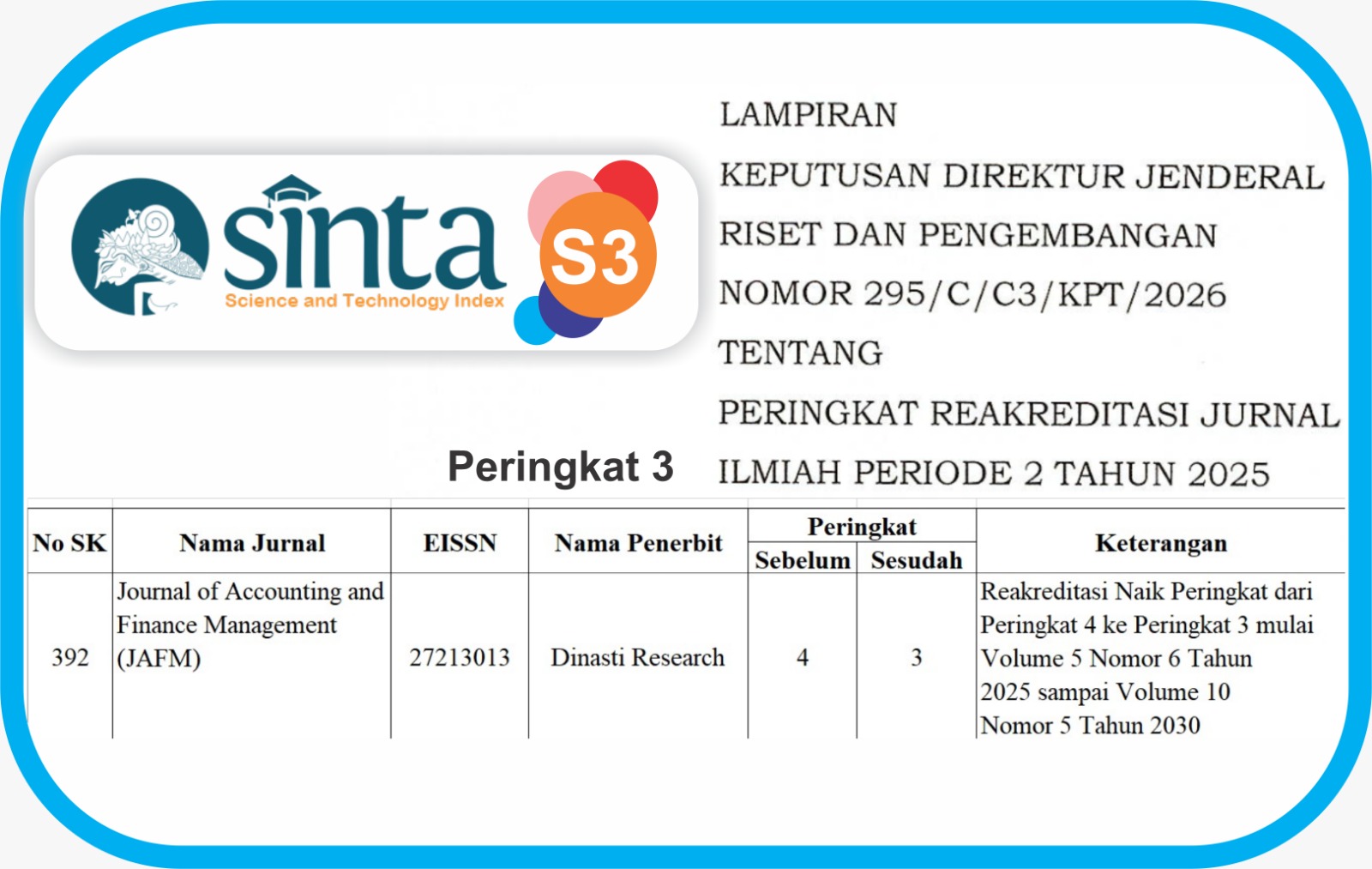Dilema Penerapan Pajak Karbon di Indonesia: Antara Komitmen Lingkungan dan Ketahanan Ekonomi Industri
DOI:
https://doi.org/10.38035/jafm.v5i5.1206Keywords:
Carbon Tax, Environmental Policy, Economic Resilience, Industry, IndonesiaAbstract
This research examines the dilemma of implementing carbon tax in Indonesia, specifically in balancing environmental commitments with industrial economic resilience. Using a mixed-method approach with sequential explanatory design, the study surveyed 511 respondents in the Greater Jakarta area. Results indicate that 81.41% of respondents rated the policy implementation effectiveness as moderate, while 82.2% considered implementation transparency to be at a moderate level. Regarding economic impact, 75.5% of respondents reported that the policy had a moderate intrusive level on the economy. These findings suggest a need to improve policy implementation mechanisms, particularly in monitoring aspects and information transparency. The study recommends a comprehensive strategy encompassing the development of industry incentive systems, periodic evaluations for more adaptive policy adjustments, and enhanced transparency and public engagement. In conclusion, a balanced approach is necessary to ensure carbon tax policies can achieve environmental objectives without causing excessive economic impact on the industrial sector and society.
References
Anugrah, N. (2023, October 11). Perdagangan Karbon untuk Pencapaian Target NDC: Kontribusi Indonesia bagi Agenda Perubahan Iklim Global. Kementerian Lingkungan Hidup Dan Kehutanan.
Aziz, M. (2024, March 22). Indonesia Menyongsong Pajak Karbon. Pajak.Go.Id.
Grelle, S., & Hofmann, W. (2024). When and Why Do People Accept Public-Policy Interventions? An Integrative Public-Policy-Acceptance Framework. Perspectives on Psychological Science, 19(1), 258–279.
Haryanto, J. (2022). Update Kebijakan Pajak Karbon. In Harian Ekonomi Neraca, Harian Ekonomi Neraca.
Kementerian Energi dan Sumber Daya Mineral. (2021, November 15). Carbon Tax Diterapkan di Pembangkitan per 1 April 2022. Kementerian Energi Dan Sumber Daya Mineral.
Meila, K., Dianty, A., & Veronica, L. (2024). Penerapan Pajak Karbon dalam Mewujudkan Sustainability Development Goals Serta Dampaknya Terhadap Penerimaan Pajak di Indonesia . Owner: Riset & Jurnal Akuntansi, 8(2), 1849–1864.
Nestlé Indonesia. (2022, November). Penyebab dan cara mengatasi emisi karbon. Nestlé.
Nurahmad. (2023). Bursa Karbon Indonesia (IDXCarbon) Resmi Diluncurkan.
Pratama, B., Ramadhani, M., Lubis, P., & Firmansyah, A. (2022). Implementasi Pajak Karbon Di Indonesia: Potensi Penerimaan Negara Dan Penurunan Jumlah Emisi Karbon. Jurnal Pajak Indonesi, 6(2), 368–374.
Pratama, R. (2024, August 16). Menuju Implementasi Pajak Karbon . Media Keuangan.
Rahmat, U. (2024). Prioritas Diplomasi Delegasi Indonesia pada Konferensi Tingkat Tinggi PBB mengenai Perubahan Iklim yang ke-29 (COP29) UNFCCC tahun 2024.
Republic of Indonesia. (2022). Enhanced Nationally Determined Contribution.
Wala, Gevan Naufal & Rasji. (2023). Problems of Tax Collection by the Tax Mafia in the Perspective of Tax Law. Aurelia: Jurnal Penelitian dan Pengabdian Masyarakat Indonesia, 2(2), 1138-1142.
Downloads
Published
How to Cite
Issue
Section
License
Copyright (c) 2024 Jasmine Farsya Arafy Herlucky, Leivasya Angta Laudia

This work is licensed under a Creative Commons Attribution 4.0 International License.
Authors who publish their manuscripts in this journal agree to the following conditions:
- The copyright on each article belongs to the author(s).
- The author acknowledges that the Journal of Accounting and Finance Management (JAFM) has the right to be the first to publish with a Creative Commons Attribution 4.0 International license (Attribution 4.0 International (CC BY 4.0).
- Authors can submit articles separately, arrange for the non-exclusive distribution of manuscripts that have been published in this journal into other versions (e.g., sent to the author's institutional repository, publication into books, etc.), by acknowledging that the manuscript has been published for the first time in the Journal of Accounting and Finance Management (JAFM).



























